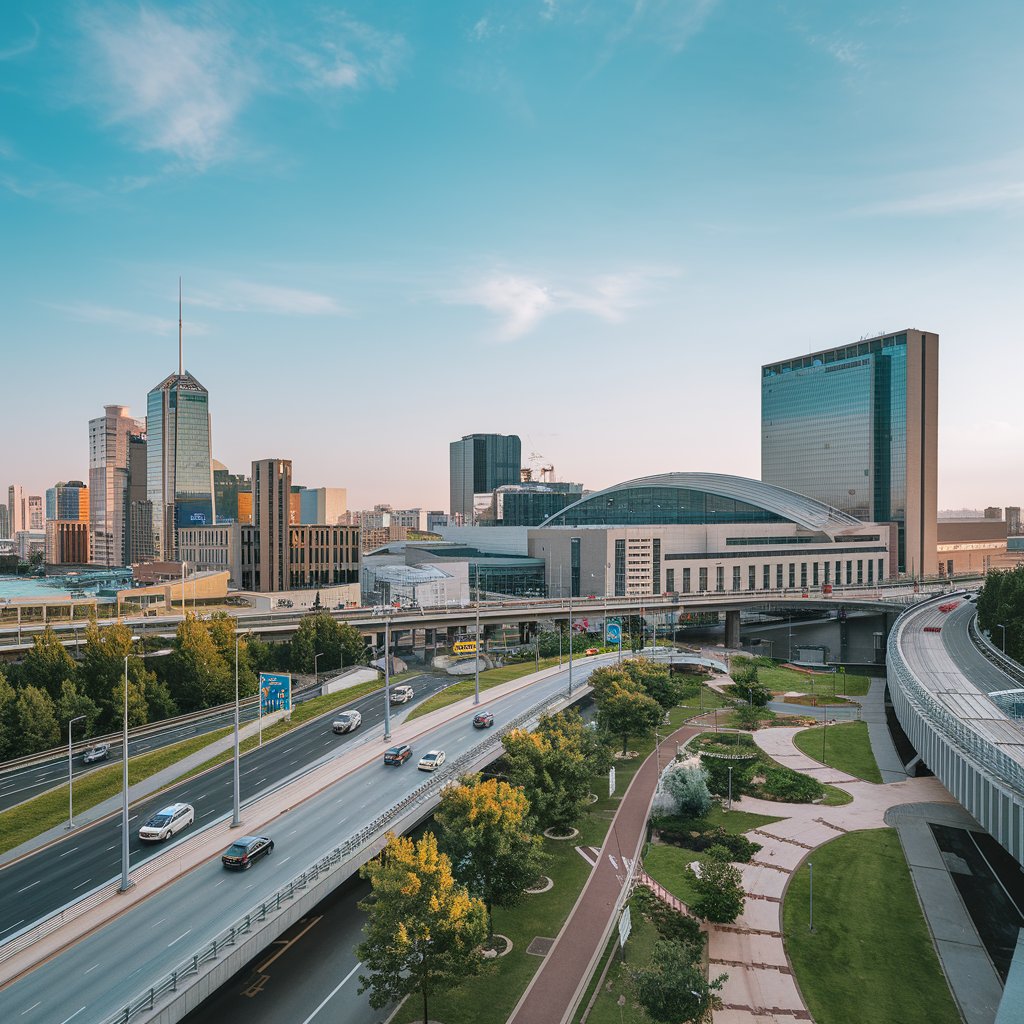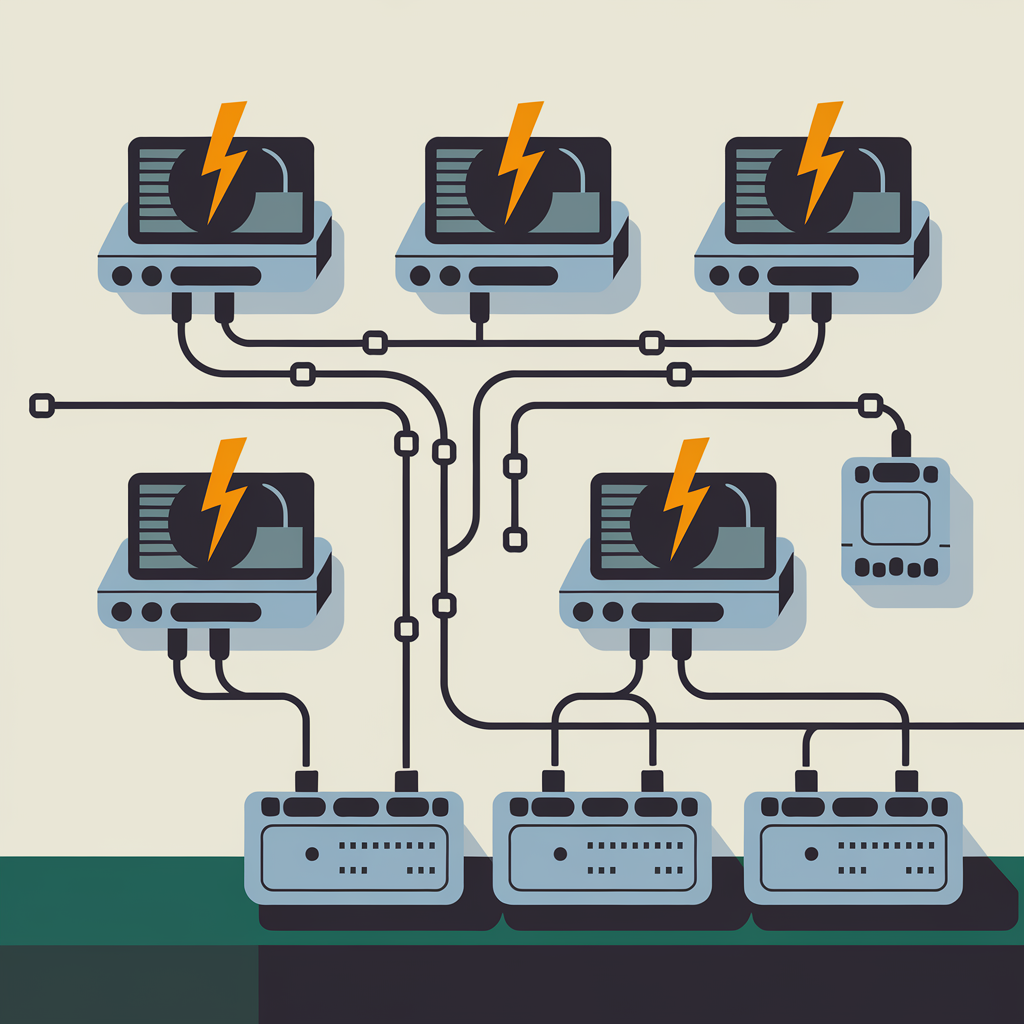In recent years, Artificial Intelligence (AI) has emerged as a powerful tool in shaping how cities evolve and function. As urban populations continue to grow, cities face challenges such as congestion, resource scarcity, and environmental concerns. AI is being applied across urban development to create smarter, more efficient, and sustainable cities. From traffic management and energy optimization to urban planning and construction, AI technologies are transforming how urban spaces are designed, built, and maintained.
Understanding AI in Urban Development
AI refers to systems or machines that can perform tasks requiring human intelligence, such as problem-solving, learning, and decision-making. In the context of urban development, AI can analyze large datasets, predict outcomes, automate tasks, and offer innovative solutions to common urban problems.
The application of AI in cities is not just about technology; it is about improving the quality of life for urban dwellers, reducing environmental impact, and enhancing the efficiency of services. AI-powered solutions are helping cities become more resilient, sustainable, and adaptive to rapid changes.

Key Applications of AI in Urban Development
-
Smart Traffic Management Traffic congestion is one of the most significant challenges facing cities today. With millions of vehicles on the road, urban areas experience gridlock, air pollution, and lost productivity. AI can help alleviate this issue by analyzing traffic patterns in real time and optimizing traffic flow.
AI-powered traffic systems can adjust signal timings, monitor traffic volumes, and direct vehicles based on current road conditions. By doing so, cities can reduce congestion, improve air quality, and enhance the overall travel experience for residents.
-
Energy Efficiency and Sustainability As cities grow, so does their demand for energy. AI plays a crucial role in managing energy consumption and reducing carbon footprints. Smart grids powered by AI can predict energy demand patterns and optimize the distribution of electricity, ensuring that energy is used efficiently.
Additionally, AI technologies enable the integration of renewable energy sources such as solar and wind power into urban grids. This results in greener, more sustainable cities that can reduce dependence on fossil fuels and combat climate change.
-
Urban Planning and Design AI is also transforming urban planning and design. Traditionally, urban planning relied heavily on human intuition and manual calculations. However, with AI, planners can simulate various scenarios, predict outcomes, and design cities that are more resilient, sustainable, and livable.
AI algorithms can analyze demographic trends, climate data, and infrastructure needs to propose optimal layouts for buildings, roads, parks, and utilities. By doing so, AI helps create cities that cater to the needs of their growing populations while minimizing environmental impacts.
-
Smart Waste Management Efficient waste management is crucial for maintaining clean, sustainable cities. AI-driven waste management systems are capable of optimizing waste collection routes, sorting materials, and predicting waste production patterns.
For example, smart bins equipped with sensors can monitor the amount of waste they contain and alert waste management teams when they need to be emptied. This reduces the number of unnecessary waste collection trips, saving time, energy, and costs.
-
AI in Construction The construction industry is undergoing a major transformation thanks to AI. Machine learning and AI-driven tools are used for predictive maintenance, risk analysis, and project management. AI can help identify potential construction delays, ensure worker safety, and predict equipment failure.
Additionally, AI-powered robots and drones are being deployed in construction sites to carry out repetitive tasks such as surveying, monitoring, and bricklaying, increasing efficiency and reducing human error.
Benefits of AI in Urban Development
1. Improved Quality of Life
AI in urban development directly impacts residents’ daily lives. From better traffic management to optimized energy use, AI enhances convenience, safety, and overall well-being in urban spaces.
2. Sustainability
By reducing energy consumption, optimizing waste management, and integrating green technologies, AI contributes to building more sustainable cities. The ability to predict and reduce energy usage is a significant step toward combating climate change and fostering a greener future.
3. Economic Growth
The integration of AI technologies can result in significant economic benefits for cities. By improving operational efficiencies and reducing waste, AI can help cities cut costs, increase productivity, and drive innovation in multiple sectors, from construction to transportation.
4. Resilience and Adaptation
AI helps cities become more resilient to disruptions, such as natural disasters, infrastructure failures, or pandemics. By analyzing vast amounts of data, AI can provide insights that enable cities to adapt to new challenges quickly.
Challenges of AI in Urban Development
Despite the immense potential of AI in urban development, its implementation comes with challenges. These challenges must be addressed to ensure that AI technologies are applied responsibly and equitably in cities.
-
Data Privacy and Security Cities collect vast amounts of data to enable AI systems to function effectively. This raises concerns about privacy and the security of personal information. Strong data protection policies and transparent data usage practices must be established to protect residents’ rights.
-
Equity and Inclusion There is a risk that AI-driven solutions could exacerbate social inequalities if they are not designed inclusively. Cities must ensure that AI benefits all residents, including marginalized communities, and that smart technologies are accessible to everyone.
-
Infrastructure and Investment The integration of AI into urban infrastructure requires significant investment in technology, training, and digital infrastructure. Governments and private companies need to collaborate to fund AI initiatives and ensure that cities are prepared for future technological advancements.
The Future of AI in Urban Development
Looking ahead, AI is set to play an even more prominent role in shaping the future of cities. As technology continues to advance, AI will help create smarter cities that can anticipate and address challenges before they arise.
One exciting development is the rise of digital twins, which are virtual models of physical cities. These AI-powered models can simulate real-world scenarios, helping urban planners and policymakers make data-driven decisions about city development and management. By leveraging AI, digital twins can help cities optimize everything from traffic flow to energy distribution, creating more efficient and livable environments.


Conclusion
AI in urban development is revolutionizing the way cities are designed, managed, and experienced. From improving traffic systems and optimizing energy usage to enhancing construction processes and ensuring sustainability, AI holds the key to building smarter, more resilient, and sustainable cities for the future. However, as we integrate AI into urban spaces, we must address concerns related to data privacy, equity, and infrastructure to ensure that AI technologies benefit all urban residents.
The potential of AI in urban development is limitless, and as cities continue to embrace this technology, we can expect a future where cities are not only more efficient but also more connected, sustainable, and human-centered.
High Authority Website Links for Reference:
- World Economic Forum on Smart Cities and AI
- McKinsey on AI in Urban Planning
- Forbes on AI and Sustainability in Cities
- MIT Technology Review on AI and Urban Development
- Urban Future Lab on AI in Cities
By leveraging advanced AI technologies, cities can achieve better functionality, sustainability, and resilience in the face of urbanization challenges.


